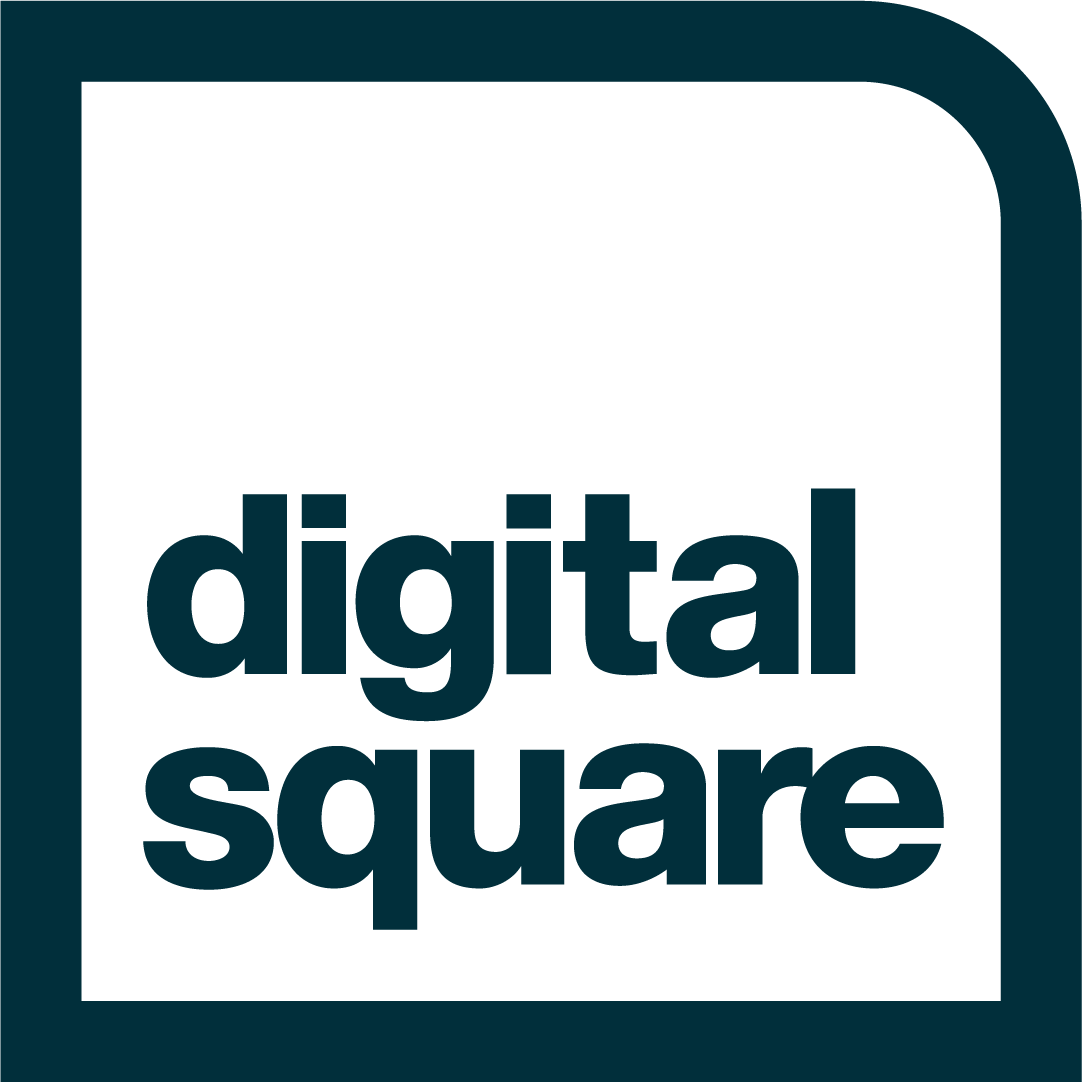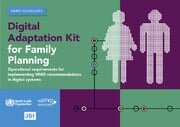Digital Square promotes the development, adoption, and reuse of digital health global goods and helps improve their availability, adaptability, and maturity.
Digital Square defines global goods as digital health tools that are adaptable to different countries and contexts. There are three types of global goods:
Software: A software tool that is free and open source (FOSS), and used to manage, analyze, or transmit health-related data, with proven utility in several settings.
Services: A software tool that is used to manage, transmit, or analyze health-related data that can be freely accessed as a software service and adheres to open data principles.
Content A resource, toolkit, or data standard that is available under an open license and that is used to improve or analyze health data management processes
What makes a global good “mature”?
A mature digital health software global good is software that is free and open source, is supported by a strong community, has a clear governance structure, is funded by multiple sources, has been deployed at significant scale, is used across multiple countries, has demonstrated effectiveness, is designed to be interoperable and is an emergent standard application.
Maturity is demonstrated through indicators such as:
Scale: Implemented by a large number of parties/deployed at scale/used by multiple countries.
Funding: By multiple parties/sustainable.
Evidence of Effectiveness: Demonstrated effectiveness/evidence-based/emergent standard.
This concept of maturity is further detailed in the Digital Square - Global Goods Maturity Model which was developed with input from the digital health community. In contrast, the Digital Public Good (DPG) definition, by design, has no maturity requirement. Therefore, any solutions that otherwise address the DPG Standard may be considered DPGs. This difference creates an opportunity to describe digital health global goods as a mature subset of DPGs.
The growing adoption of global goods also comes with a heightened responsibility to ensure that they are secure and resilient against evolving cybersecurity threats. The Security Maturity Framework for Global Goods provides a structured approach to embedding robust security measures into the design, development, and deployment of these digital solutions.
Digital square support for global goods
Digital Square partners with innovators to increase the availability, adaptability, and maturity of high-quality software, service, and content options for countries—including health-focused, mature Digital Public Goods. Digital Square supports global goods by:
Administering an inclusive digital health procurement process by allocating global goods investments transparently and with community input. Digital Square makes investments in global goods primarily via the Open Application Process, which is an innovative procurement solution that fosters collaboration and agility.
Managing an active community of global goods partners. The global goods community allows partners to connect and learn from each other’s best practices, in turn improving the interoperability of software. The community participates in monthly webinars, contributes to quarterly newsletters, co-creates publications, and participates in our annual Global Good Innovators meeting.
Coordinating with stakeholders on digital public goods alignment. Digital Square is closely coordinating with the Digital Public Goods Alliance (DPGA) and use of global goods for specific health vertical use cases through the WHO Clearinghouse. These efforts will enable countries and investors to increase confidence in the specific digital tools to be prioritized for scale and adaptation in countries. Through this engagement, Digital Square will refresh its prioritization framework and Open Application Process to align more closely with tools formally vetted through the DPGA.
Digital Square supports the global digital health community, including country governments, in understanding, aligning, and applying these standards.
Digital Square’s advocacy efforts promote the appropriate use of standards in health system design and support technical teams in adopting standards in their tools.
Digital Square holds active chairing positions across many standards development organizations.
Digital Square facilitates knowledge-sharing platforms to raise awareness of standards, increase feasibility, and contribute to a range of tools that allow users to recognize the short- and long-term impact of the standards.
Digital Square actively convenes a cadre of approved global goods partners and provides ongoing support to a range of other global goods partners.
Digital Square collaborates with a range of stakeholders to identify and improve upon frequently occurring challenges to deploy solutions more effectively.
Digital Square engages global leaders to advance the ecosystem of standards for open-source technologies.
Empowering Africa-based Digital Health Entrepreneurs
Digital Square is dedicated to encouraging innovation in healthcare across African countries by supporting local digital health entrepreneurs. In our blog post, “Seeking Africa-based Digital Health Entrepreneurs,” we highlight the work of Africa-based entrepreneurs who are helping improve healthcare through digital solutions. PATH has also created a list of Africa-based Digital Health Entrepreneurs, which serves as a valuable resource for connecting with key innovators. These efforts aim to showcase the important work being done and encourage collaboration in the global health space.
Global goods in action
SORMAS in Nigeria: Adapting a fully integrated surveillance system to track COVID-19
Even before Nigeria reported its first case of COVID-19 in February 2020, SORMAS had begun to deploy a new COVID-19 module that would enable Nigerian authorities to track cases and contacts. Read more on Exemplars in Global Health.
Uganda implements new health system integration technology
In Uganda, the mHero Connector makes it possible to automatically synchronize and verify data from the Community Health Worker Registry with FamilyConnect. Read more from UNICEF Uganda.
DHIS2 – A Digital Public Goods Case Study
Over the last decade, DHIS2 has expanded beyond traditional HMIS reporting to include the collection of individual-level data feeding into shared health records including: lab results; disease surveillance; contact tracing and more. Read more from the DPGA.
Digital Adaptation Kits: Operational requirements for implementing WHO recommendations in digital systems
Digital Adaptation Kits (DAKs) are part of the SMART guidelines initiative to ensure WHO’s evidence-based guideline content is accurately reflected in the digital systems countries are adopting. The DAKs are software-neutral, operational, and structured documentation based on WHO clinical, health system and data use recommendations to systematically and transparently inform the design of digital systems. Read more from WHO.
The Global goods guidebook
The Global Goods Guidebook is a living, interactive resource showcasing global goods for health that are approved through Digital Square. Use dynamic filtering and sorting options to easily find a global good for a specific use case.
Global Goods Deployed Globally
Click on the map below to see the global goods deployed throughout the world.
What are digital public goods?
Digital public goods (DPGs) are defined by the UN Secretary-General, in the Roadmap for Digital Cooperation, as “open source software, open data, open AI models, open standards and open content that adhere to privacy and other applicable laws and best practices, do no harm, and help attain the Sustainable Development Goals.”
This definition has been translated into a 9-indicator open standard by the Digital Public Goods Alliance (DPGA). This standard requires DPGs to demonstrate:
Relevance to the SDGs
Use of an approved license
Clear ownership
Platform independence
Documentation
A mechanism for the extraction of non personally identifiable information
Adherence to privacy and applicable laws;
Adherence to standards and best practices; and
A commitment to do no harm.
The DPG Standard has been designed to be relevant for all DPGs, regardless of sector.
For more information about Digital Square’s partnerships with UNICEF, WHO, the Digital Public Goods Alliance and DICE, please visit Digital Square's wiki here.
DIGITAL SQUARE WIKI
More information about Digital Square’s support for global goods can be found on the Digital Square wiki.








